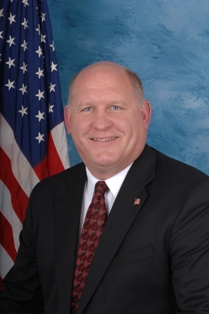President Barack Obama will visit a public library in Washington’s Anacostia neighborhood, one of the poorest areas in the District, Thursday to announce two new efforts to bolster reading among children in low-income areas.
According to the National Assessment of Educational Progress, 81% of DC 4th graders read below grade level — a problem not unique to the nation’s capital. This comes after the President linked some of the racial tension between police officers and communities to education and lack of opportunity Wednesday, saying the society’s responsibility was to rebuild these impoverished communities.
The first part of President’s plan is to give young people better digital access to books.
“The problem is clear, and it’s also clear that access to books is part of the solution,” Jeff Zients, a chief economic advisor to the President, told reporters. Zients cited a study that found households in middle-income neighborhoods have 13 books per child, while in low-income neighborhoods that ratio is one book for every 300 children. “By expanding kids’ access to books, we can help foster a love of learning and build the reading skills needed more than ever in the 21st century.”
Several major publishers, including Simon & Shuster, Penguin Random House and HarperCollins, will make about 10,000 popular e-books, more than $250 million, available to low income students.
In addition, the New York Public Library is working to give low income students ranging from four to 18-years-old access to thousands of digital books, through an app it is developing.
The second part of President announcement Thursday is the ConnectED Library Challenge, with the goal of putting a library card in every child’s hand to ensure they have access to not only books, but public internet.
According to a report by The National Telecommunications and Information Administration, 30 percent of households did not have internet access as of 2011. Obama will ask cities to work with the nearly 16,000 public libraries across the country to provide cards to all their students.
The administration noted that more than 30 major cities have already agreed to take the challenge including Baltimore, Charlotte, D.C and St. Louis.
While Obama is not expected to speak on the racial tensions and recent rioting in Baltimore at this event, Zients indicated this initiative is one way the administration is addressing issues in poverty-stricken cities saying “we have to consider what we can do to provide opportunities in every community, not just when they’re on the front page, but every day.”



